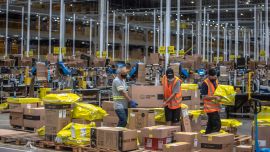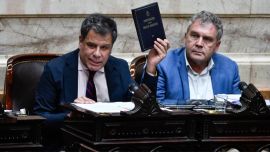Just over a year ago, Chile’s billionaire president, Sebastián Piñera, had an approval rating of six percent, the lowest in Latin America. His nation was exploding over inequality and he was dismissed as a hardhearted plutocrat. The demand running wild on social media was: “Piñera, resign.”
Today, Chile is vaccinating its population against Covid at a rate that outstrips most of the world due partly to Piñera’s shrewd dealmaking with drug companies. The result: his approval rating has leaped to between 14 percent and 20 percent, with the nation slowly becoming more grateful to the executive at the top.
“This time, his past as a businessman played to his favour,” said Gonzalo Muller, director of the centre of public policy at the Universidad del Desarrollo. “He showed his business capacity and his abilities to mobilise resources, manage and negotiate.”
About 21 percent of Chileans have received a coronavirus vaccine shot, more than in the United States at roughly 18 percent and way ahead of Peru at one percent and Argentina’s 2.6 percent, according to Bloomberg’s vaccine tracker. In fact, Chile, with 18 million inhabitants, expects to inoculate its entire target population by June, giving Piñera a chance to recraft a legacy tainted by social unrest. He has even announced plans to donate some vaccines to neighbours Ecuador and Paraguay.
The government’s Covid response has earned a 52 percent approval, and 80 percent consider mass vaccinations either “good” or “very good,” according to a Cadem poll published on March 8.
Both figures are substantially higher than Piñera’s who’s facing an uptick in virus infections coinciding with the end of summer vacation at the start of March. More broadly, he is grappling with lingering mistrust from the 2019-2020 mass protests, when he called in the military, as well as the threat of fresh unrest as the country starts to draft a new constitution this year. Put together, he is running out of time to boost his approval and give the ruling coalition a better shot at staying in power ahead of November’s presidential elections.
Still, his stronger standing contrasts with the fortunes of other Latin American leaders who have been weakened by the pandemic. Brazil President Jair Bolsonaro is grappling with falling approval amid nationwide vaccine shortages and record virus deaths, while leaders in Peru and Argentina are contending with scandals over VIP access to shots.
Implementing a responsible vaccination programme has been one of Piñera’s main concerns from day one, government spokesman Jaime Bellolio said when asked for comment. Any approval rating increases stemming from government actions are welcome, he added.
Chile took unusually early action against the virus. In January 2020, weeks before Latin America’s first case was confirmed, researchers at local universities working with government officials started seeking vaccines, according to Fernando Leanes, the World Health Organisation Chile representative.
The Science Ministry established contacts with laboratories that were developing vaccines and offered Chile for clinical trials, while the Foreign Ministry closed deals for shots and the Health Ministry organised local awareness campaigns and distribution.
“The high policy priority, the amount of resources that were set aside and the early negotiations made a difference,” Leanes said. “There was decisive support from local governments that made additional resources available to guarantee refrigeration chains, electronic vaccination registrations, monitoring and permanent tracking in vaccination centres.”
By December, Chile had secured almost 36 million doses from suppliers including Sinovac and Pfizer-BioNTech. Officials haven’t let up with a recent push to secure doses of the Russian and other Chinese vaccines as well as long-term contracts with multiple laboratories.
Chile’s vaccination roll-out has been efficient, and it will help drive the nation’s economic recovery this year, central bank President Mario Marcel said at an online event on Tuesday. Policy makers expect gross domestic product to expand between 5.5% and 6.5% in 2021.
Chile remains in a state of political uncertainty as it rethinks its constitution and grapples with its identity as the wealthiest country on the continent where millions still struggle.
Piñera’s future remains equally unclear although Muller of the Universidad del Desarrollo believes his approval rating will continue to grow.
“After a year stuck in a black cloud, we are seeing the light at the end of the tunnel,” he said. The vaccination process is helping change sentiment “from a view that everything is bad to one of hope for the future.”
related news

Banned Venezuela opposition leader María Corina Machado insists she is 'Plan A'

Mercado Libre to recruit 18,000 more staff in Latin America this year

Diplomatic U-turn: Milei requests meeting with Lula to discuss 'joint policies'

Diana Mondino: Mercosur must open up to ‘agreements with other countries’
by Valentina Fuentes & Matthew Malinowski, Bloomberg





















Comments